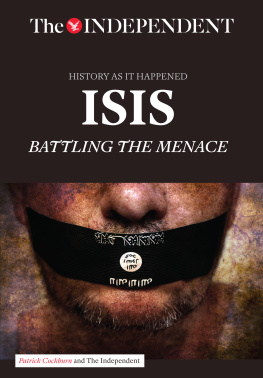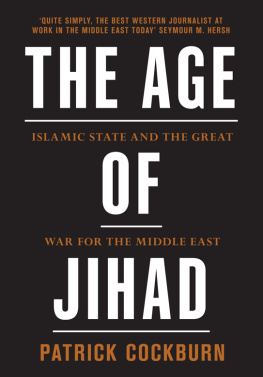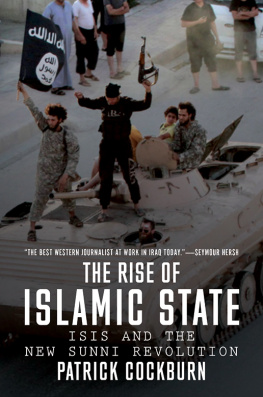Patrick Cockburn - War in the Age of Trump: The Defeat of ISIS, the Fall of the Kurds, the Conflict with Iran
Here you can read online Patrick Cockburn - War in the Age of Trump: The Defeat of ISIS, the Fall of the Kurds, the Conflict with Iran full text of the book (entire story) in english for free. Download pdf and epub, get meaning, cover and reviews about this ebook. year: 2020, publisher: Verso Books, genre: Politics. Description of the work, (preface) as well as reviews are available. Best literature library LitArk.com created for fans of good reading and offers a wide selection of genres:
Romance novel
Science fiction
Adventure
Detective
Science
History
Home and family
Prose
Art
Politics
Computer
Non-fiction
Religion
Business
Children
Humor
Choose a favorite category and find really read worthwhile books. Enjoy immersion in the world of imagination, feel the emotions of the characters or learn something new for yourself, make an fascinating discovery.
- Book:War in the Age of Trump: The Defeat of ISIS, the Fall of the Kurds, the Conflict with Iran
- Author:
- Publisher:Verso Books
- Genre:
- Year:2020
- Rating:4 / 5
- Favourites:Add to favourites
- Your mark:
- 80
- 1
- 2
- 3
- 4
- 5
War in the Age of Trump: The Defeat of ISIS, the Fall of the Kurds, the Conflict with Iran: summary, description and annotation
We offer to read an annotation, description, summary or preface (depends on what the author of the book "War in the Age of Trump: The Defeat of ISIS, the Fall of the Kurds, the Conflict with Iran" wrote himself). If you haven't found the necessary information about the book — write in the comments, we will try to find it.
Patrick Cockburn: author's other books
Who wrote War in the Age of Trump: The Defeat of ISIS, the Fall of the Kurds, the Conflict with Iran? Find out the surname, the name of the author of the book and a list of all author's works by series.
War in the Age of Trump: The Defeat of ISIS, the Fall of the Kurds, the Conflict with Iran — read online for free the complete book (whole text) full work
Below is the text of the book, divided by pages. System saving the place of the last page read, allows you to conveniently read the book "War in the Age of Trump: The Defeat of ISIS, the Fall of the Kurds, the Conflict with Iran" online for free, without having to search again every time where you left off. Put a bookmark, and you can go to the page where you finished reading at any time.
Font size:
Interval:
Bookmark:

WAR IN THE AGE OF TRUMP

Patrick Cockburn is currently Middle East correspondent for The Independent and worked previously for the Financial Times. He has written four books on Iraqs recent historyThe Rise of Islamic State, Muqtada al-Sadr and the Fall of Iraq, The Occupation, and Saddam Hussein: An American Obsession (with Andrew Cockburn)as well as a memoir, The Broken Boy and, with his son, a book on schizophrenia, Henrys Demons, which was shortlisted for a Costa Award. He won the Martha Gellhorn Prize in 2005, the James Cameron Prize in 2006, the Orwell Prize for Journalism in 2009, the Foreign Commentator of the Year in 2013, and the Foreign Affairs Journalist of the Year in 2014.
WAR IN THE AGE OF TRUMP
The Defeat of Isis, the Fall of the Kurds,
the Conflict with Iran
Patrick Cockburn

This edition first published by Verso 2020
Patrick Cockburn 2020
First published in the United States by OR Books LLC,
New York Patrick Cockburn 2020
All rights reserved
The moral rights of the author have been asserted
1 3 5 7 9 10 8 6 4 2
Verso
UK: 6 Meard Street, London W1F 0EG
US: 20 Jay Street, Suite 1010, Brooklyn, NY 11201
versobooks.com
Verso is the imprint of New Left Books
ISBN-13: 978-1-83976-040-2
ISBN-13: 978-1-83976-042-6 (US EBK)
ISBN-13: 978-1-83976-041-9 (UK EBK)
British Library Cataloguing in Publication Data
A catalogue record for this book is available from the British Library
Library of Congress Cataloging-in-Publication Data
A catalog record for this book is available from the Library of Congress
Printed in the UK by CPI Group (UK) Ltd, Croydon, CR0 4YY
Contents
T his book covers the critical three years after the election of Donald Trump as US president in 2016. Its central themes are the US-Iran confrontation, the defeat of Isis and the fallsome say betrayalof the Kurds. The election of Trump coincided almost exactly with the start of the nine-month siege of Mosul by the Iraqi army, which was to be the decisive battle in the defeat of Isis. The terminal date of the book is early 2020 with the assassination of Iranian General Qasem Soleimani by the US in Iraq and the impact of this in Iraq and Iran. This followed closely on Trumps announcement in the fall of 2020 of US military withdrawal from Syria and opened the door to a Turkish invasion of northern Syria. At the same time, mass street protests in Iraq and Lebanon were beginning to shake the political dominance of Iran and its allies in the Shia heartlands. Much that I wrote during this period concerned the rise and fall of the de facto Kurdish states in Iraq and Syria and the final elimination of the self-declared Isis caliphate, which culminated in death of Abu Bakr al-Baghdadi.
As in a previous volume, I look at events from two angles. One is contemporary description using writings and diaries I produced at the time; the other is retrospective explanation and analysis from the perspective of today. Both have their advantages: it is important to know what events looked like when they were still happening, but also to see retrospectively how things panned out and what was their true significance. As historians have often said, it is important to remember that past events were once in the future.
I have tried to give a voice to what Syrians, Iraqis, and Kurds felt about events as they unfolded around them. Their instincts, honed by decades of danger to themselves and their families, were often sharper, or at least different from mine. I always try to keep in mind the warning of an Iraqi friend who told me, as we drove through a particularly violent district north of Baghdad, Take off your seatbeltno Iraqi ever wears one and it identifies you as a foreigner.
Canterbury
14 January 2019
At the time of his assassination, General Qasem Soleimanis strategy in Iraq and in other Middle Eastern countries with large Shia populations, had become counterproductive. He is now guaranteed the status of an Iranian and Shia warrior-martyr, in spite of the mistakes he made in the last years of his life, the effects of which may, to some extent, have been reversed by President Donald Trumps decision to kill him. Beginning last October in Iraq, Soleimani orchestrated the violent repression of small-scale protests about social and economic grievances, which turned them into something close to a mass uprising by the Shia community. Iran and its proxies were blamed for the death of more than 500 protesters and injuries to 15,000 others; demonstrators chanting anti-Iranian slogans burned the Iranian consulates in the Shia holy cities of Karbala and Najaf. Later the same month in Lebanon, vast crowds filled the streets of Beirut, demanding an end to a political status quo that Hezbollah, Irans local ally, had fought for decades to create. In Iran itself, the government ruthlessly suppressed November protests over fuel price rises; according to Amnesty International 304 people were killed. At home and abroad, the Shia coalition, which Iran had built up with immense effort since the 1979 revolution, was falling apart; the Iranian state and its two most powerful regional allies, Hezbollah in Lebanon and the Hashd al-Shaabi, or Popular Mobilisation Forces, in Iraq, were losing their legitimacy as defenders of their communities and the opponents of foreign interference in their countries.
The Iranian leadership faced a political crisis long before President Trump ordered the assassination by American drone of Soleimani at Baghdad airport on 3 January. Trump ignored the old military saying Never interrupt your enemy when he is in the middle of making a mistake, at a time when Soleimani, and those who thought like him in Iran, Iraq, and Lebanon, had made a grave misjudgment in choosing violent repression to deal with opponents of the political status quo. As the largest crowds since the funeral of Ayatollah Khomeini in 1989 filled the streets of Tehran and other cities to mourn Soleimani, senior members of the Iranian government appeared astonished by a renewed sense of national solidarity. Demands by demonstrators that the government stop wasting money on foreign adventures, like those organised by Soleimani, were replaced with cries for vengeance against the US. Since he withdrew from the Iran nuclear deal in 2018, the purpose of Trumps Iran policy and, crucially, the imposition of sanctions has been to ramp up popular pressure on the Iranian leadership, forcing them to give in to US demands if they want to stay in power. There was strong evidence that this approach was working until the Soleimani killing revived support for the government in Tehran.
But Trump is not the only leader who makes unforced errors. Just when the Iranian government was riding a wave of re-awakened nationalism, an Islamic Revolutionary Guard unit near Tehran airport shot down a Ukrainian passenger aircraft, killing all 176 passengers, including eighty-two Iranians and sixty-three Canadians. The Revolutionary Guards lied about their responsibility for the incident for three days until finally admitting that the crew manning the anti-aircraft missile battery had mistaken the civilian plane for a US cruise missile. Within hours, demonstrators were back in the streets of Tehran and other cities. But this time they were shouting anti-government slogans, demanding the punishment of the Revolutionary Guard commanders, and blaming the regime for everything that had gone wrong. Student protesters chanted: Guards, you are our dictator. You are our Isis, while others called for the resignation of the Supreme Leader Ali Khamenei and an end to forty years of clerical rule. Iranians noted that their military had taken great care not to kill any Americans in retaliation for the death of Soleimani when they fired ballistic missiles on 8 January at US bases at Erbil and Ain al-Assad in Iraq. They asked why their generals did not pay equal attention to keeping their own people alive. Iran is a deeply polarised country of eighty-two million people, and though not all of them will have felt that way, the popular mood swiftly changed; a week that began with the government basking in new-found popularity ended with it being denounced for its incompetence, mendacity, and brutality. These feelings of outrage and contempt were expressed in an angry joke on Iranian social media: The Revolutionary Guards have sent a message to the US that, if you attack us once again, we will level Iran to the ground.
Font size:
Interval:
Bookmark:
Similar books «War in the Age of Trump: The Defeat of ISIS, the Fall of the Kurds, the Conflict with Iran»
Look at similar books to War in the Age of Trump: The Defeat of ISIS, the Fall of the Kurds, the Conflict with Iran. We have selected literature similar in name and meaning in the hope of providing readers with more options to find new, interesting, not yet read works.
Discussion, reviews of the book War in the Age of Trump: The Defeat of ISIS, the Fall of the Kurds, the Conflict with Iran and just readers' own opinions. Leave your comments, write what you think about the work, its meaning or the main characters. Specify what exactly you liked and what you didn't like, and why you think so.

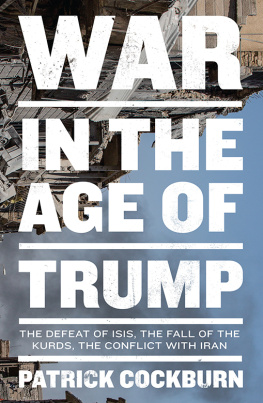
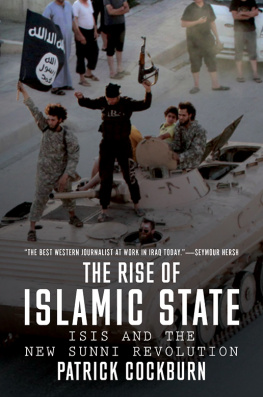
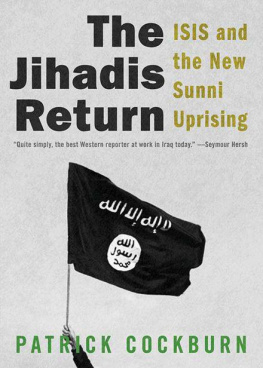
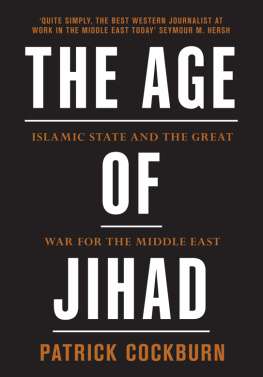

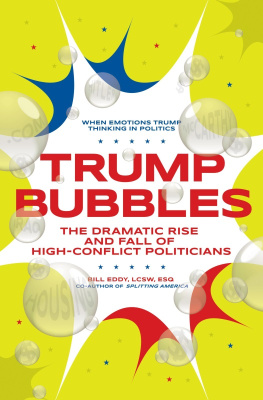
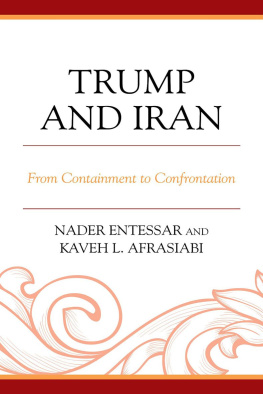
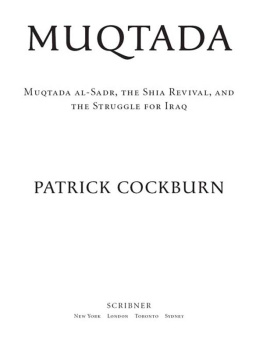
![Cockburn Patrick - Syria Burning: A Short History of a Catastrophe: [VersoUSAed]](/uploads/posts/book/207719/thumbs/cockburn-patrick-syria-burning-a-short-history.jpg)
